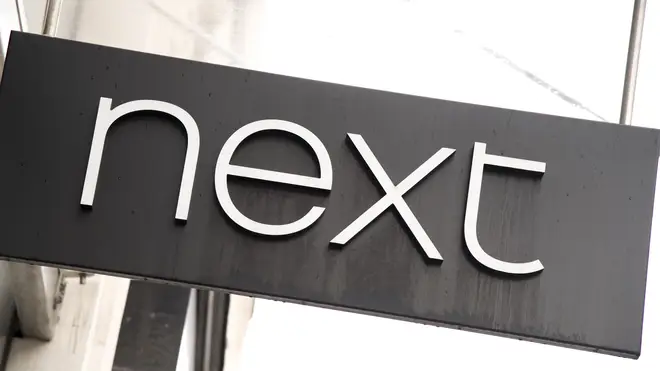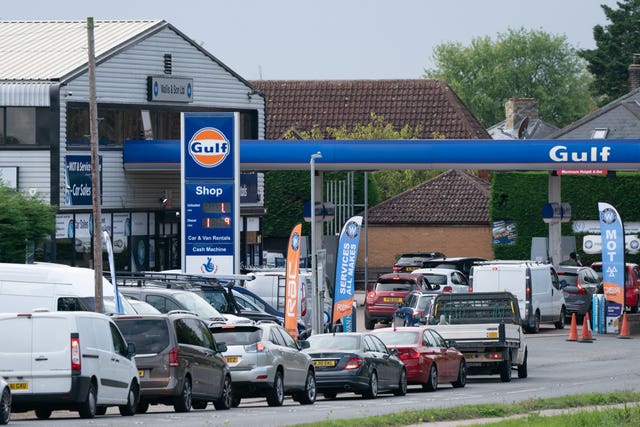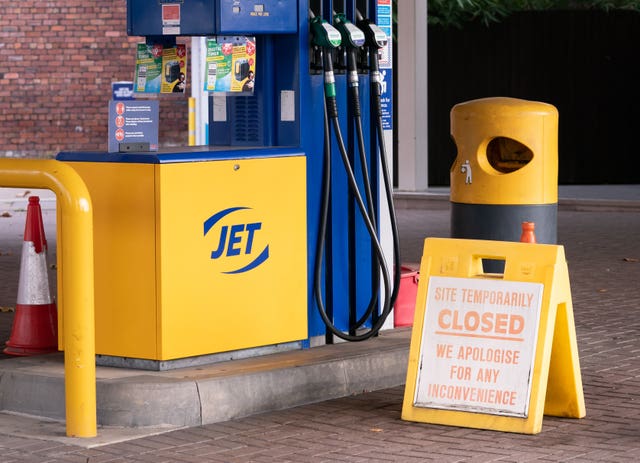
Iain Dale 7pm - 10pm
29 September 2021, 14:24

The retailer said businesses will be hit by the ‘looming skills crisis’ unless ministers relax the immigration rules.
Boris Johnson has received a fresh warning that Britain’s “looming skills crisis” is threatening supplies in the run-up to Christmas unless ministers adopt a “more decisive approach” to the issue.
Fashion giant Next said its service was likely to to experience “some degradation” as the festive season approached without a relaxation of the immigration rules.
The warning followed days of chaos on petrol station forecourts as reports that a shortage of tanker drivers was threatening supplies prompted a wave of panic-buying, with many stations running dry.
In his first public comments on the issue, the Prime Minister said on Tuesday the situation was “stabilising” and urged motorists to fill up their tanks as normal.
He said the Government was putting in place preparations to ensure “all parts of our supply chain” – not just petrol – were able to “get through to Christmas and beyond”.
At the same time, however, he said he was not prepared to address labour shortages through “uncontrolled immigration” leading to a “low wage, low skill” economy.
However, despite forecasting a further increase in profits, Next warned “seasonal labour shortages” could affect not only its business but the wider economy.
“We anticipate that, without some relaxation of immigration rules, we are likely to experience some degradation in our service in the run-up to Christmas,” it said.
“The HGV crisis was foreseen and widely predicted for many months.

“For the sake of the wider UK economy, we hope that the Government will take a more decisive approach to the looming skills crisis in warehouses, restaurants, hotels, care homes and many seasonal industries.
“A demand-led approach to ensuring the country has the skills it needs is now vital.”
The call came as 150 military drivers, together with a further 150 drivers’ mates, who have been put on standby to assist in the crisis were beginning training to operate petrol tankers.
Business Secretary Kwasi Kwarteng said the first troops would be appearing on the roads within a matter of days.
“It takes, sometimes, a few days to get troops on the ground. We have decided to do that. I think in the next couple of days you will see some soldiers driving tankers,” he said in a pooled clip for broadcasters.
He said the the Government’s reserve tanker fleet – driven by civilian drivers – was also being deployed to provide “additional logistical capacity to the fuel industry”.
The head of of one fuel supplier said it appeared “the worst is behind us” and there could even be a fall in demand in the coming days.
James Spencer, managing director at Portland Fuel, told the BBC: “The original crisis – if you want to call it that – was caused by 25 to 30 petrol stations closing down near the south coast.
“It was never a particularly major crisis in the first place, obviously then there was the panic-buying, sales at forecourts went up by 500% over the weekend.
“Lot of people have filled up their tanks now, so you might actually see a dip in demand and the replenishment of fuel at petrol stations is a 24-hour, seven-days-a-week job, so as we speak the petrol stations are being replenished.”
Mr Kwarteng also said the situation appeared to be easing.
“If we look at the deliveries of petrol they were matched yesterday by sales so that means the situation is stabilising. I think people are behaving quite responsibly,” he told the BBC.
However, Steve McNamara, general secretary of the Licensed Taxi Drivers Association in London, said there was little sign of the situation improving on the ground.

He called on ministers to follow the example of Tony Blair’s Labour government in the 2000 fuel crisis and draw up a list of of essential users to “take the sting out of the crisis”.
“Contrary to Boris Johnson’s wish list, it is not getting better,” he told the BBC Radio 4 Today programme.
“The situation is that 25% to 30% of our members were not at work yesterday, and unable get fuel to go to work, and a taxi driver without fuel is unemployed.
“It has not got any better, the queues at the station if you can find a station with any to queue up, are not getting any better.”